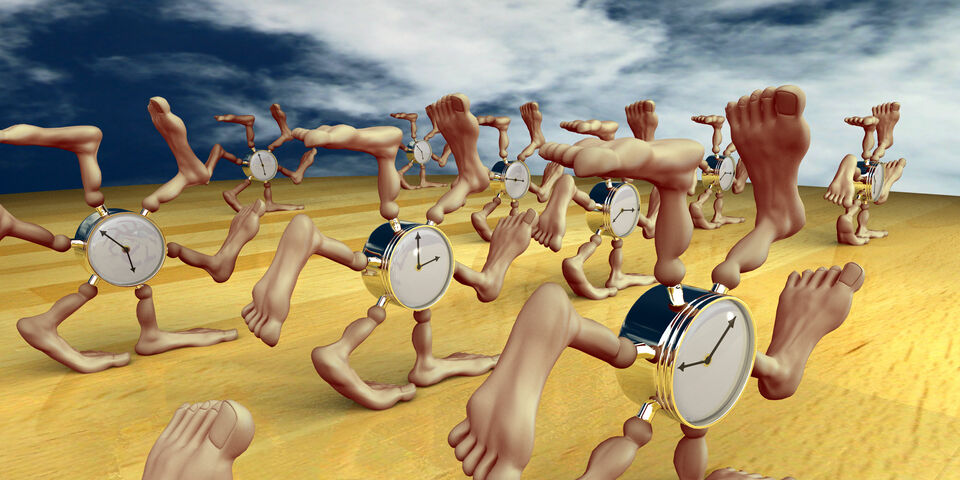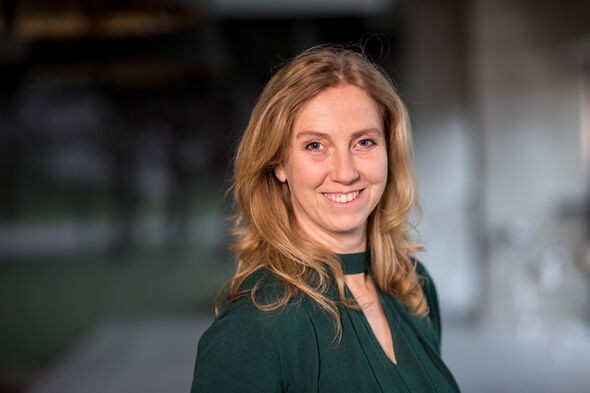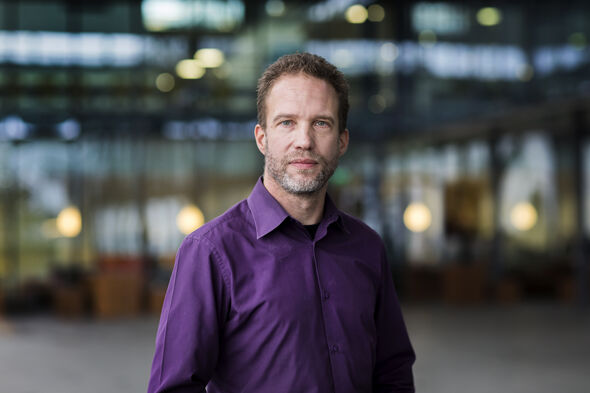Prof Talk | Don't take changing the clocks too lightly
It seemed briefly as if last weekend would be one of the last occasions on which we would have to re-set our clocks. The European Commission is arguing for the abolition of the biannual custom of changing the clocks as of Spring 2019, but the decision about having permanent Summer or Winter Time is proving more complex than anticipated. Why do we feel 'social jetlag' when we change the clocks? Does this affect everyone, and can we as individuals do anything to reduce this unpleasant feeling? And which time is the better one: Summer or Winter Time?
Our bodies aren't the same from one moment of the day to the next. Hormone levels are changing constantly, processes start and stop, and there is a time for activity and a time for sleep. All this means it is very important that we live according to our internal clock, as both Sebastiaan Overeem, sleep medicine physician and professor of Intelligent Systems for Sleep Disorders, and light expert Yvonne de Kort, professor of Human-Technology Interaction are keen to emphasize.
De Kort: “Our internal clock has a cycle of just over 24 hours and needs to be adjusted repeatedly to keep pace with the day/night rhythm. This adjustment is triggered mainly by light, despite the fact that we live increasingly indoors. We might like to think that it's our own decision how late we stay up and that we can influence our exposure to light with artificial light, but it is very unhealthy to be awake at times when your body is signaling ‘I need to sleep’ - and vice versa."
Social jetlag
"Our world is geared to morning people - people who are naturally closest to a 24-hour rhythm - and evening people find this problematical. For them, the alarm sounding in the morning is an unwelcome disturbance and they have to get up before their bio-clock is ready to do so. Catching up on sleep at the weekend to reduce the sleep deficit only confuses the biological clock more. We refer to this as having social jetlag, with all its physical and psychological consequences. And Daylight Saving Time only makes it worse.”
Concentration problems, lack of energy, mood swings and so on through to an increased chance of diabetes and obesity lie in wait when the biological clock is disrupted, explains Overeem. “At our clinic, by far the most people we see whose rhythm is so disrupted that it affects their daily functioning are evening people in the extreme – the socially acceptable times for getting up saddle them with a long-term sleep deficit. And we see only the tip of the iceberg. People naturally incline more towards an evening rhythm, in particular school pupils and students, whose bio-clocks are experiencing a temporary shift. Really, having difficulty getting out of bed is not always just a bad excuse.”
Listen to your own clock
Although it looks positive at first glance, Daylight Saving Time with its long evenings on cafe terraces has mainly disadvantages if you take the year as a whole, says Overeem. “To start with, we're actually in the wrong time zone because for practical reasons we have chosen to align ourselves with the European mainland. But here in the Netherlands the sun rises later than it does in Germany and Austria. So if we had permanent Summer Time, for a four-month period we would see the sun only after 8.30 a.m., while we'd still have to get up early. Add to that a natural inclination to go to bed later and hey presto you've got both a light deficit and a sleep deficit. ”
The average person - and certainly the evening people among us - is therefore better off with Winter Time as our permanent time, an opinion shared by De Kort. “In addition, it would be good to be open to having flexible work and school times: the ultimate solution for the differences in our biological clocks. But unfortunately we haven't yet got this working well in practice. Until we do, here's my advice, ‘Switch off the artificial light earlier in the evening - away with those screens! - and start each day early with a big hit of artificial light and going outdoors. Listen to your own clock and don't make yourself any more of an evening person than you already are.”
About Prof Talk
For anyone seeking answers to topical questions, our academic staff are the ideal oracle. Whether the question concerns the energy transition, automation or the danger posed by hackers, they provide clarity on topical news issues. While Trump would say, “It's only an opinion”, we are highly appreciative, and so once every three weeks we will be publishing Prof Talk.




Discussion